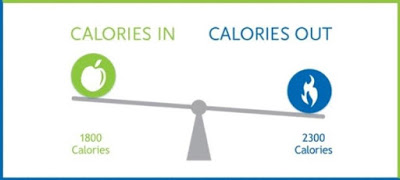When you consume more calories than your body needs, the excess ends up being stored as fat. The key to weight loss is creating a negative energy balance, also known as a caloric deficit. You create a caloric deficit when you consume less calories than which you expend. Most people require around a 3,500 caloric deficit to lose a single pound. So if you wanted to lose a pound per week, you would need a deficit of 500 calories per day. While it is attainable to eliminate 500 calories from your daily food intake, it is not attainable through only exercise.
The healthiest and most effective way to lose weight is by combining smart dietary choices with consistent exercise. Fueling an active lifestyle with a nutritious diet will allow you to shed pounds all while building muscle, gaining strength, and improving your overall health.
1. Tips on Changing What You Eat and Drink
Track What You Eat.
What you put into you body makes a difference in your health and your weight. As you track your intake, you get the bigger picture of what your food contains: carbs, fats, proteins, fiber, vitamins, and minerals. While it’s important to be as accurate as you can with food tracking when trying to create a deficit, don’t lose your mind in the process. It gets easier with practice. Stick with logging your food consistently, even if it’s not perfect.
Drink Water.
Hydration is important for everyone, but it can also be a key component in your weight loss effort. Water helps to hold off hunger. The more you drink, the less room you have for consuming calories.
Limit Added Sugars.
Added sugars are little more than empty calories that can lead to weight gain and even obesity.
Plan Your Meals.
Planning healthy meals ahead of time is one of the easiest things you can do to set yourself up for successful weight loss. It not only curbs last-minute takeout orders, but will also save you time, calories, and money.
Practice Mindful Eating.
It can be challenging to be aware of what and how much you’re putting into your body if you are multitasking while eating (i.e. watching TV or working). Mindful eating is being aware of the taste, texture, smell, and your body’s hunger and fullness cues.
2. Tips on Changing How You Move
Plan Your Workouts.
Scheduling out your workouts will help make it less likely for you to skip. If you know when and what you plan to do each day for your activity, then you’ll be more motivated to follow through.
Walk More.
The simple act of walking can be enough to lose weight and get in shape. Even if you already exercise on a regular basis, increasing your daily step count through walking can add burn those extra calories to help you create a bigger deficit.
If you understand what a caloric deficit is and how to use it to your advantage in your weight loss journey, you’ll be able to better structure you diet, lifestyle changes, and exercise to reach your targets efficiently and safely. Feel free to reach out to JOHO for a free nutrition consultation and/or goal setting session!
-Paulina Le
Health Fitness Specialist
